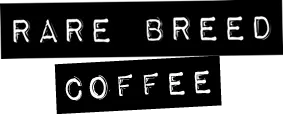Coffee should cost more. Here’s Why.
We recently had the privilege of hosting a talk with Rachel Northrop, author of When Coffee Speaks. Rachel’s book is a narrative journey through Central and South America, detailing her visits to coffee farms through interviews with farmers and their families. The book carriers the voices of coffee farmers from distant lands to our homes in the US. Rachel shares their stories without adding any of her own influence to the message. She uses her understanding of the Spanish language to create a link between us and some of the people who produce the coffee we love. We were delighted to host Rachel for a talk at A&E and to hear her perspective on coffee cost, and the direction of the industry.
Rachel’s draw to the industry
We are all very familiar with the trend in the states to shop local and organic. Overall, it is a great movement. Marketing ploys like “green-washing” have muddled the waters a little bit for well-intentioned consumers. Personally, I find it difficult to navigate what certifications really matter sometimes. Rachel was a high school teacher in NYC before she wrote her book. She became fascinated with the urban “locovore” movement there. She began writing food blogs about where food comes from and how shopping locally is important. She noticed at farmers’ markets, when she saw people holding chain coffee cups, that no one in the continental U.S. can truly live this life style if they drink coffee because coffee does not grow in our climate. Rachel realized that she had no idea where the coffee she was drinking came from. She decided to embark on a journey to Central and South America, to get some answers.

Rachel’s talk at A&E
Coffee should cost twice what it does.
Coffee is a tropical fruit. It sounds weird, but when Rachel puts it in these terms it makes sense. When we buy exotic fruits at the grocery store we have an understanding of the journey it took for them to get here. Coffee on the other hand, seems like such an ingrained part of our culture, that it has lost its exotic air. This actually goes back to the American revolution. Revolutionaries wanted to differentiate themselves from the tea-drinking monarchy from which they arose. Coffee seemed like the perfect replacement, so began America’s coffee craving. At this time, coffee was mostly picked by slaves. The C market price for coffee was set with almost no labor costs involved. This, of course, made it deceptively cheap. When land holders started paying for labor, the price did not go up enough. Consumers now expect a locked price of $2 (or less) for a cup of coffee. So an industry has arisen in which the producers can make very little money. Having said that, coffee does help provide essential income for many people on the planet. The fair thing would be to simply pay farmers more for their product. This of course requires consumers to pay more on their end, demanding a massive shift in mentality. Rachel compared the labor and cost of production in the coffee industry to that of the wine industry. Cost on the growing end is the same, but consumers pay half the price of a mediocre cup of wine for a specialty cup of coffee.
Where do we go from here?
It is difficult from a consumer perspective to know what coffee to buy. People ask me how they can tell they are buying coffee that will make a positive impact. Organic certification is good from a planet perspective, but the investment does not always pay off for the farmers. Fair trade is also good, but not all fair trades are certified as such. In general, I’d say to just ask the origin question. Try to find a local business that seems to care. Ask the cashier, barista, manager, roaster, or owner where the beans come from.
Right now at A&E we are focusing on how to communicate the story of our beans to our customers. We are featuring coffees that carry great origin stories. Right now, we have a fantastic coffee from La Voz co-op in Guatemala. Emeran and I met the farmers of this co-op in March and formed a friendship with them. It is an honor for me to tell their story here at A&E. We also have a direct trade coffee from Norma Laura in Honduras. She grows coffee on her farm, Finca Gabby (named for her daughter). We are happy to continue supporting her this year. We are actually paying her above the suggested market price for her green beans. Our customers make that possible, so thank you!
We are going to have copies of Rachel’s book circulating at the shop. If you would like to borrow a copy, please let me know:-)


